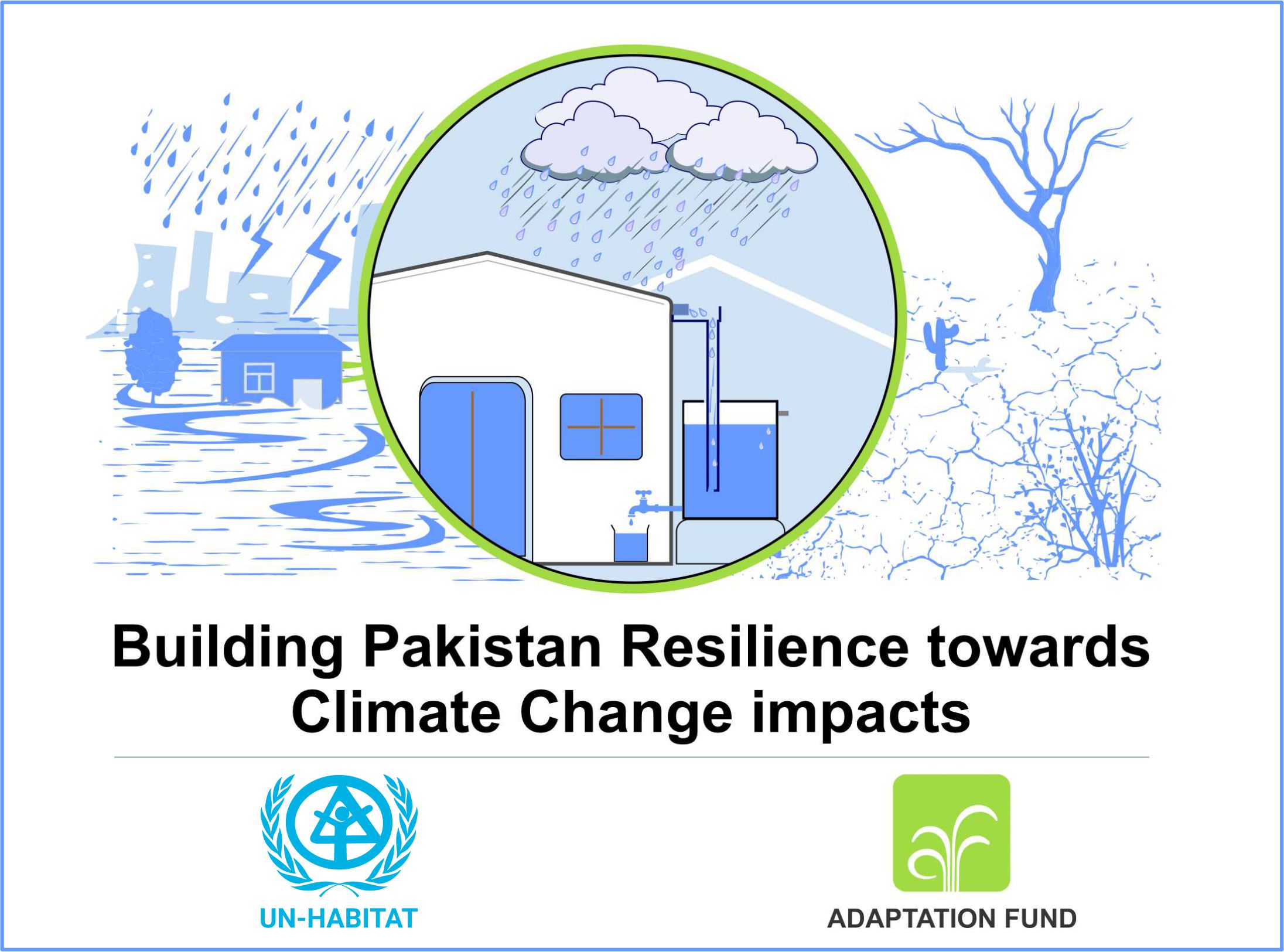Enhance community, local and national-level urban climate change resilience to water scarcity, caused by floods and droughts in Rawalpindi and Nowshera, Pakistan
Project Background and Context
Problem Statement, Need for the Project and Proposed Approach Reducing the impact of flooding and droughts is becoming one of the top priorities of the government of Pakistan. The government has requested UN-Habitat, through its Adaptation Fund designated authority to develop a project that addresses these adaptation challenges in line with the National Water Policy 2018, the National Flood Protection Plan 2016 and the National Disaster Management Plan 2012. Even though flood impacts are often severe in urban areas, a national approach to address this situation in cities doesn’t exist in Pakistan. This is critical, considering that 36.4% of Pakistan’s population lives in urban areas. Existing approaches to deal with flood and drought impacts are not comprehensive and rainwater harvesting techniques are rarely used. Recurring floods damage the lives of individuals, destroy infrastructure and render much drinking water infrastructure unusable in affected areas. In addition, unplanned urban sprawl has led to encroachment on riverbanks and other flood-prone areas. On the River Kabul in Nowshera, in Khyber Pakhtunkhwa Province and the Nullah Lai River in Rawalpindi, Punjab Province, floods exacerbated by poor drainage and settlement encroachment are repeatedly affected the poorest and most vulnerable people. Tube wells get submerged and access to potable, safe water becomes difficult. As the majority of people depend on water from these sources for drinking, cooking and domestic use, floods have very serious effects – counterintuitively leaving hundreds of thousands of people without access to safe, clean water. Recurrent floods have been known to contaminate groundwater down to a level of 100 feet (30.5 metres) and thus affect people who depend on pumped ground water.
Further water contamination occurs because of improper solid waste disposal, which clogs drainage channels. The urban poor are then the most affected as they can’t afford deeper boreholes (which may not be effective anyway). This leads to serious outbreaks of disease during flood periods, which particularly affects women, children, the elderly and those with underlying medical conditions. In Rawalpindi, for example, a recent study showed that the majority of water sources had indicator microorganisms beyond WHO permissible limits. Water harvesting initiatives and facilities are very limited in Pakistan. The limited facilities in existence rely on techniques that are not well developed their ability to reduce flood impacts or adapt to climate change more generally has not been established. Therefore, the proposed approach of this project is necessary as well as costeffective in the Pakistan urban context. To scale the project’s approach, a national urban strategy will be developed, focusing on climate change impacts, particularly floods and water scarcity (and resulting public health problems), while also employing a spatial planning approach.
